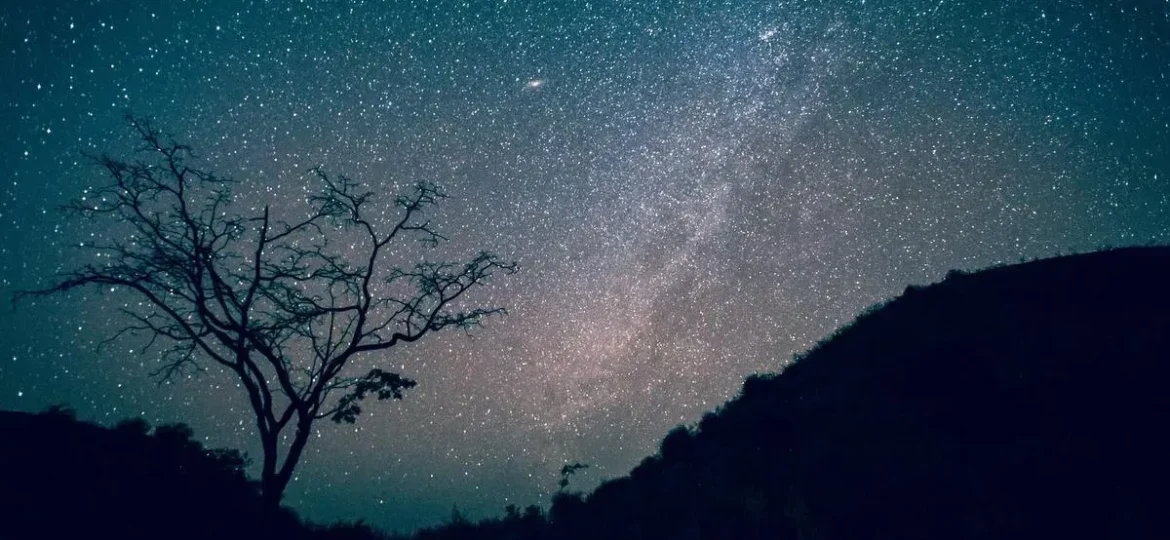
“When someone dies, God puts a new star in the sky,” my mother said.
I was six or seven probably. It was a summer evening just before bedtime, when the stars begin to come out and you can count them better. My mother and I were in the backyard, me in my PJ’s, I think, and she in a nice dress. In my memory, the dress was black; she had been at a funeral that afternoon. A friend and neighbour had died, a woman who gave me cookies when I’d knock on her door — me, the neighbourhood cookie mooch; she, a lovely woman older than my mother. My mother was sad but stoic. I felt, rather than saw, her tears as she told me about the funeral, perhaps about death in general. I was sad too: our neighbour was a nice lady, a kind of substitute grandma, and great cookie maker.
My mother was my first and best teacher.
“Every time someone dies,” my mother said, “God puts a new star in the sky for us to find. I bet you can pick hers out. If you do, we’ll name it after her, and we’ll remember her every time we look at it.” It felt right — a way of saying Mrs. Patterson (not her real name) was still with us.
I began to point out stars. On my third or fourth try, my mother said, “Yes I think you’re right, that one wasn’t there last night, I’m sure. Good for you!”
I’m betting that star is still there, helping us remember Mrs. P and her cookies. It’s been joined by countless others since, my mother’s included — millions or more, a whole raft of them during COVID, many more since. We ourselves have lost friends and family over the last few years: men and women we shared holidays, dinners and lives with, laughing through it all. A trio of brothers left us, too: my fiercely independent brother-in-law; my dear, quiet, affable brother; and an American friend as close as any brother. I can point out each of their stars if you want.
A grieving patient asked me this question once, maybe it’s the question: How do we manage the funerals and the dark days following?
The movie, Living, tries to teach us an answer. It’s generous; it give us two lessons. One, even though we know our days are numbered, find joy in each little event. And two, leave a legacy. In the movie, Bill Nighy’s character ensures that a children’s playground is built (a cool idea, though beyond the reach of most of us).
My patients offered their answers over the years, too, my second great group of teachers. Here’s a handful of their lessons. Hold your loved ones close when you’ve got them; let them go when it’s time. Work as hard as you can to replace sadness with gratitude. Find or leave a legacy, not necessarily of the bricks-and-mortar type. Talk about the person and the void his or her passing has left. And this lesson, not from a patient, but from William Faulkner, the American novelist: the past, you know, isn’t.
Last, a final gift, from Viktor Frankl, the great Austrian-American psychiatrist and writer, the sole member of his family to survive the Holocaust. Treating a grieving widow one day, he gave her permission to cry as much as she wanted. I’ll paraphrase: “Would you erect a monument to your husband if you could?” he asked. “Of course,” came the reply. “Your tears are just that,“ he said, “a monument to your husband. Every one of them is a statement of your love.”
He gave her the gift of meaning. My mother’s gift was and is no less powerful. Tucking me into bed that first evening, she said: “Don’t forget now: when you lose someone, find a new star. Name it for the person. Remember them.”
Now that I’m closer to her age (and frankly closer to the star stage), I know what she meant: in the darkness, it helps to find a light, even a tiny one.


